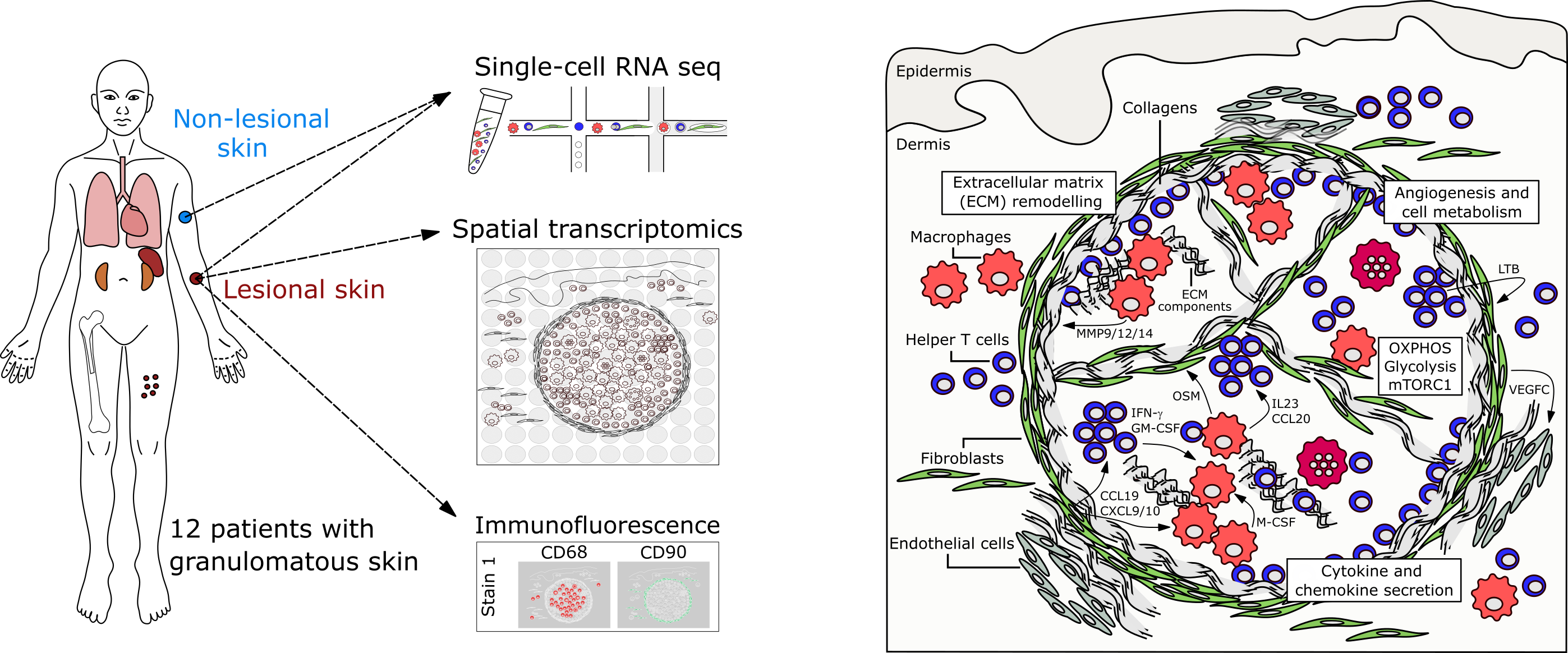Human Cell Atlas & single-cell biology of organoids

Single-cell sequencing and spatial profiling technologies uncover the molecular complexity that is inherent in human organs. We contribute to the Human Cell Atlas on its quest to map all human cell types, with a focus on human organoids as experimentally tractable models of development, disease, and therapy.
Single-cell technologies provide a fundamentally new perspective for understanding biology, with profound potential to drive therapeutic advances. They enable us to revisit human anatomy and physiology with unprecedented molecular resolution. Moreover, these assays help uncover the hidden cellular heterogeneity that is present both in primary tissues and in complex in vitro disease models, thereby contributing to robust, reproducible biomedical research and clinical translation.
We are using single-cell technologies in a range of applications, organs, and diseases. Most notably, we have initiated an Organoid Cell Atlas initiative, as a ‘Biological Network’ within the Human Cell Atlas (HCA), and we coordinate the HCA|Organoid consortium aimed at establishing comprehensive single-cell profiles of brain and colon organoids (funded by the European Union).
Organoids recapitulate important aspects of human biology in the lab, thereby allowing us to perform highly interventional studies that would otherwise be impossible in human. Using high-throughput functional assays such as CRISPR screens with single-cell sequencing readout (with our CROP-seq and scifi-RNA-seq methods) and cell-cell interaction profiling in co-cultures of organoids and immune cells, we study human biology and human diseases in an exciting new way.
Publications

Single-cell and spatial transcriptomics reveal aberrant lymphoid developmental programs driving granuloma formation
Krausgruber T, Redl A#, Barreca D#, Doberer K, Romanovskaia D, Dobnikar L, Guarini M, Unterluggauer L, Kleissl L, Atzmüller D, Mayerhofer C, Kopf A, Saluzzo S, Lim CX, Rexie P, Weichhart T, Bock C*, Stary G*
Immunity 56, 289-306 (2023). DOI: 10.1016/j.immuni.2023.01.014
Donwload PDF
Read online (without subscription)

Ultra-high-throughput single-cell RNA sequencing and perturbation screening with combinatorial fluidic indexing
Datlinger P, Rendeiro AF, Boenke T, Senekowitsch M, Krausgruber T, Barreca D, Bock C
Nature Methods 18, 635-642 (2021). DOI: 10.1038/s41592-021-01153-z
Donwload PDF
Read online (without subscription)

The Organoid Cell Atlas
Bock C, Boutros M, Camp JG, Clarke L, Clevers H, Knoblich JA, Liberali P, Regev A, Rios AC, Stegle O, Stunnenberg HG, Teichmann SA, Treutlein B, Vries RGJ, the Human Cell Atlas ‘Biological Network’ Organoids
Nature Biotechnology 39, 13-17 (2021). DOI: 10.1038/s41587-020-00762-x
Donwload PDF
Read online (without subscription)
Press release

Single-cell RNA-seq with spike-in cells enables accurate quantification of cell-specific drug effects in pancreatic islets
Marquina-Sanchez B*, Fortelny N*, Farlik M*, Vieira A, Collombat P, Bock C*, Kubicek S*
Genome Biology 21, 106 (2020). DOI: 10.1186/s13059-020-02006-2
Donwload PDF
Read online (without subscription)

Pooled CRISPR screening with single-cell transcriptome readout
Datlinger P, Schmidl C, Rendeiro A, Krausgruber T, Traxler P, Klughammer J, Schuster L, Kuchler A, Alpar D, Bock C
Nature Methods 14, 297-301 (2017). DOI: 10.1038/nmeth.4177
Donwload PDF
Read online (without subscription)

Single-cell transcriptomes reveal characteristic features of human pancreatic islet cell types
Li J*, Klughammer J*, Farlik M*, Penz T*, Spittler A, Barbieux C, Berishvili E, Bock C*, Kubicek S*
EMBO Reports 17, 178-187 (2016). DOI: 10.15252/embr.201540946
Donwload PDF
Read online (without subscription)
* shared first or shared senior authorship


